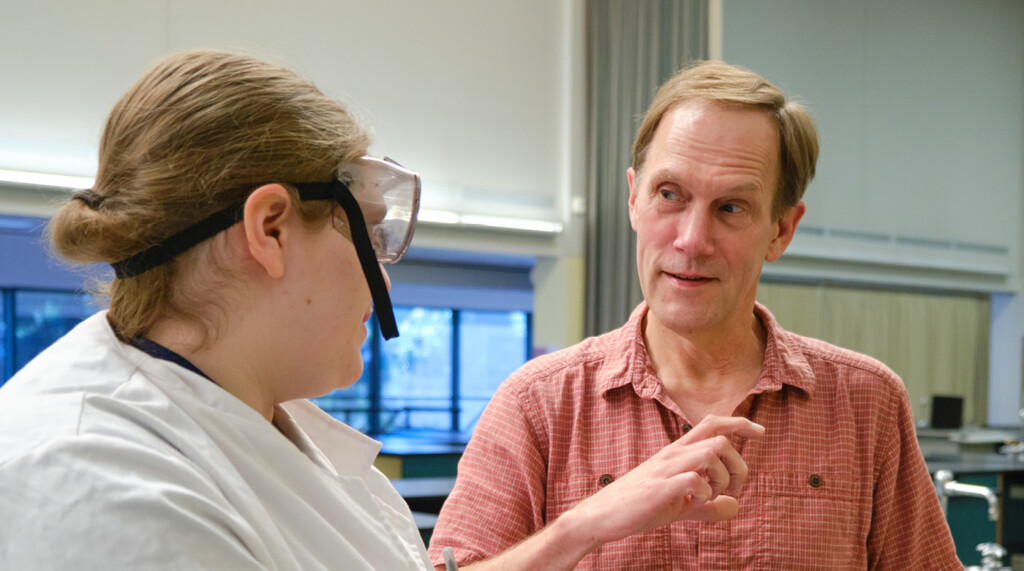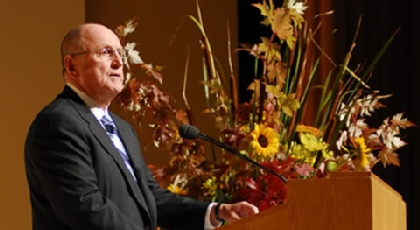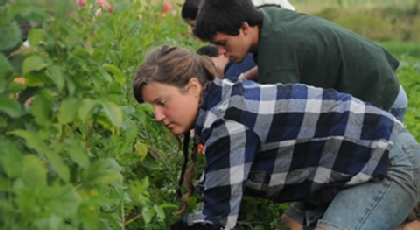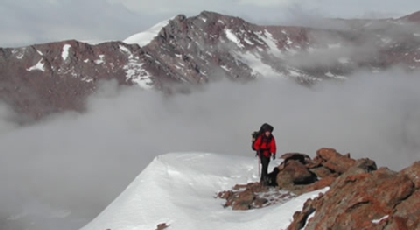Page 81 • (957 results in 0.042 seconds)
-

was very stressful. I, like my coworkers, lacked lab experience due to the pandemic and everything was intimidating at first,” engineering major Sandy Montgomery ’23 says. “Once I had a couple of weeks to figure out where everything was and to practice basic techniques, I felt much more comfortable working independently.” Jackie Lindstrom ’22, a chemistry major and fellow student researcher, said that after the year of remote learning, the in-lab experience was invaluable. “I am more appreciative
-

gathered samples and expertly interpreted the amassed data. This research project was part of the Natural Sciences Summer Undergraduate Research Program (NSSURP). NSSURP allows student researchers to work directly with PLU faculty mentors to experience a learning dimension rarely accessible from the academic-year textbook and laboratory assignments. Research projects reflect the natural sciences fields of biology, chemistry, computer science, environmental studies, geosciences, mathematics, physics
-
divisions. “Endowment funds are the engine behind us,” Killen said. The funds provide student and faculty stipends and cover research and travel costs. “When donors choose a student-faculty research endowment as one of their options, they are making it possible for PLU to do the type of integrated teaching, learning, research, public engagement that is essential to the university carrying out its mission,” she continued. Among the many donors in attendance were Naomi and Don Nothstein, founders of the
-
great teaching experience – he’s teaching some of his fellow players Spanish, and he’s learning some Norwegian. Taylor plans to major in global studies and journalism and take those skills back to Tumaco, Colombia, where he plans to do volunteer work in literacy camps. The region is very important to him – he was adopted at an early age and lived in Gig Harbor, Wash., but Tumaco is where his birth parents are from. He relishes the opportunity to return to the area and give back to those who have not
-
spending time in a specialty tea shop, tasting, learning about teas, how to prepare them, and the types. The owner was a remarkable woman. What has been the reaction to you, when they find out where you are from, that you are an American? The people are so eager to help. They are very earnest. They will stop and try to help and will personally, sometimes physically, take you to where you need to go, rather than just point. The taxi drivers often try out their English. Many people will just want to stop
-
students receive some form of financial aid through scholarships, grants and endowments, many of which are funded by PLU constituents. Gifts to Q Club help lessen the financial strain on students and their families, support the faculty in enriching curriculum, and allow students to expand their campus activities and learning experiences. Many people have gone above and beyond the call to support PLU and Q Club. We profile a few of them here. While their affiliation to PLU is varied, they share a spirit
-

, others may be unsettling or scary for some, Anderson said. “The drumbeat of change is rumbling around us,” he said. “The next decade our focus must broaden.” Some of the ideas that the university community will need to wrestle with include: – The demographics of PLU’s student body are changing. The student body will be more diverse- both ethnically and socioeconomically. And their learning styles will be different. “The implications for schedule and calendar, as well as campus and classroom are many
-

-profit farm which aims to promote self-sufficiency, inclusion and independence for people with developmental disabilities and rural youth. “I just liked their mission,” Anna Payton, a first-year student from Puyallup, Wash., said. “I really like that they give disadvantaged youth and people with disabilities the opportunity to work.” Payton and the rest of the students in her group spent the day learning about Left Foot’s mission and helped farm workers pull weeds.“Their hearts seem to be in the
-

gathering point for all Antarctic expeditions and scientific research. Once at McMurdo, they will spend two weeks learning about how to survive on the ice (they’ll be living out of a tent, 500 miles west of McMurdo), packing their food, and going over their itinerary for their six-week stay. Joining them on this expedition, which was funded by a $125,000 National Science Foundation grant secured by Todd, will be two University of Washington students, a researcher from the University of California
-
clubs and organizations with the idea of starting a unicycle club on campus. After a long process of gathering signatures and university approval, the club was officially approved in January 2009. “I figured I might as well give it a shot,” Bendzak said. “I spent a lot of time figuring out if unicycles were even allowed on campus.” LUNICYCLERS stands for “Lutes with a Unique and Nifty Interest in Carefully Yet Courageously Learning an Exquisitely Radical Skill.” A mouthful of an acronym, Bendzak
Do you have any feedback for us? If so, feel free to use our Feedback Form.


